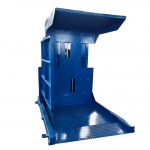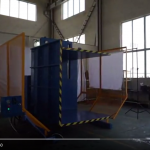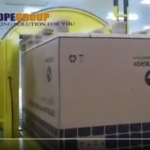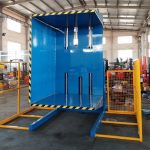How Pallet Inverters Can Reduce Product Damage and Improve Handling Efficiency
- How Pallet Inverters Can Reduce Product Damage and Improve Handling Efficiency
- 1. What is a Pallet Inverter?
- 2. How Do Pallet Inverters Reduce Product Damage?
- 3. Enhancing Handling Efficiency with Pallet Inverters
- 4. Key Applications of Pallet Inverters
- 5. Reducing Labor Costs and Worker Fatigue
- 6. Key Considerations When Choosing a Pallet Inverter
- 7. Real-World Case Studies: Pallet Inverters in Action
- Conclusion

In the fast-paced world of logistics and warehousing, the need to optimize processes, reduce product damage, and improve overall handling efficiency is paramount. One of the most innovative solutions to address these challenges is the pallet inverter. This equipment, designed to rotate pallets and their loads, not only minimizes manual handling but also drastically improves efficiency in handling operations. In this article, we will dive into the many ways pallet inverters can reduce product damage and improve handling efficiency, outlining the benefits, key considerations, and industry use cases.
1. What is a Pallet Inverter?
A pallet inverter is a mechanical device used to turn or rotate pallets and their contents. This equipment allows businesses to change or switch pallets without unloading the entire load manually. Instead, the inverter can rotate the entire load, making the process quicker and safer. Pallet inverters are especially useful in scenarios where product integrity is vital, such as in food, pharmaceutical, and fragile goods industries.
Key Features of a Pallet Inverter:
- Full pallet rotation, typically 180 degrees
- Manual or automated operation
- Capability to handle varying pallet sizes and weights
- Safe and secure handling of products during the inversion process
2. How Do Pallet Inverters Reduce Product Damage?
Product damage during material handling is a significant concern for any business. Damaged products lead to financial losses, customer dissatisfaction, and operational inefficiencies. One of the key areas where pallet inverters excel is in reducing damage during handling. Here’s how:
a. Minimizing Manual Handling
One of the leading causes of product damage is excessive manual handling. Workers lifting, moving, or re-stacking pallets increases the risk of items being dropped or mishandled. By using a pallet inverter, businesses can significantly reduce the need for manual intervention, lowering the likelihood of accidental drops and mishandling.
b. Improved Stability During Pallet Exchange
Pallet inverters provide enhanced stability when changing or swapping pallets. Instead of manually unloading items to switch pallets, the inverter can secure the entire load and rotate it with minimal risk of movement. This stability is especially crucial for fragile items or products sensitive to movement, such as glass, ceramics, or delicate electronics.
c. Protecting Product Integrity
In industries like pharmaceuticals, food, and beverage, maintaining the integrity of the product is critical. Pallet inverters can be used to handle these products without compromising their condition. For example, rotating a pallet without exposing items to external contaminants helps preserve product quality and prevents spoilage.
3. Enhancing Handling Efficiency with Pallet Inverters
Efficiency is the lifeblood of any logistics or warehousing operation. Improving the speed and accuracy of material handling processes can lead to significant cost savings and improved operational flow. Pallet inverters contribute to efficiency in several ways:
a. Faster Pallet Swapping
Manual pallet swapping is time-consuming, especially when dealing with large or heavy loads. A pallet inverter can rotate and switch pallets in a fraction of the time it would take workers to unload and reload items. This reduction in time spent on pallet exchanges boosts handling efficiency and allows workers to focus on more value-added tasks.
b. Versatile Handling Capabilities
Pallet inverters are versatile machines that can handle various pallet sizes and types. This flexibility allows businesses to use the same machine for different products and pallet sizes, streamlining operations and reducing the need for multiple pieces of equipment. The ability to invert different types of loads also eliminates bottlenecks in material flow.
c. Automation Options
Many modern pallet inverters come equipped with automation features, further improving efficiency. Automated pallet inverters can work continuously without the need for constant human intervention, reducing labor costs and improving accuracy. This automation also helps reduce the risk of human error, ensuring that pallet exchanges are done consistently and quickly.
4. Key Applications of Pallet Inverters
Pallet inverters are used across a wide range of industries. Their versatility and efficiency make them indispensable in operations where handling large volumes of products is critical. Let’s look at some key industries and applications where pallet inverters shine.
a. Food and Beverage
In the food and beverage industry, pallet inverters are essential for managing perishable goods. Products like fruits, vegetables, dairy, and beverages need to be handled quickly to prevent spoilage. Pallet inverters help by speeding up pallet swaps and maintaining the integrity of goods during handling.
b. Pharmaceuticals
In the pharmaceutical industry, maintaining product integrity is critical. Pallet inverters can handle sensitive pharmaceutical products without damaging packaging or contaminating the products. The ability to rotate pallets without opening boxes or exposing products to the environment ensures the safety and compliance of pharmaceutical products.
c. Warehousing and Logistics
In large-scale warehousing and logistics operations, pallet inverters improve the efficiency of material handling by speeding up processes like pallet swapping, load transferring, and load stabilization. These machines help warehouses maintain a smooth flow of materials and ensure that handling bottlenecks are minimized.
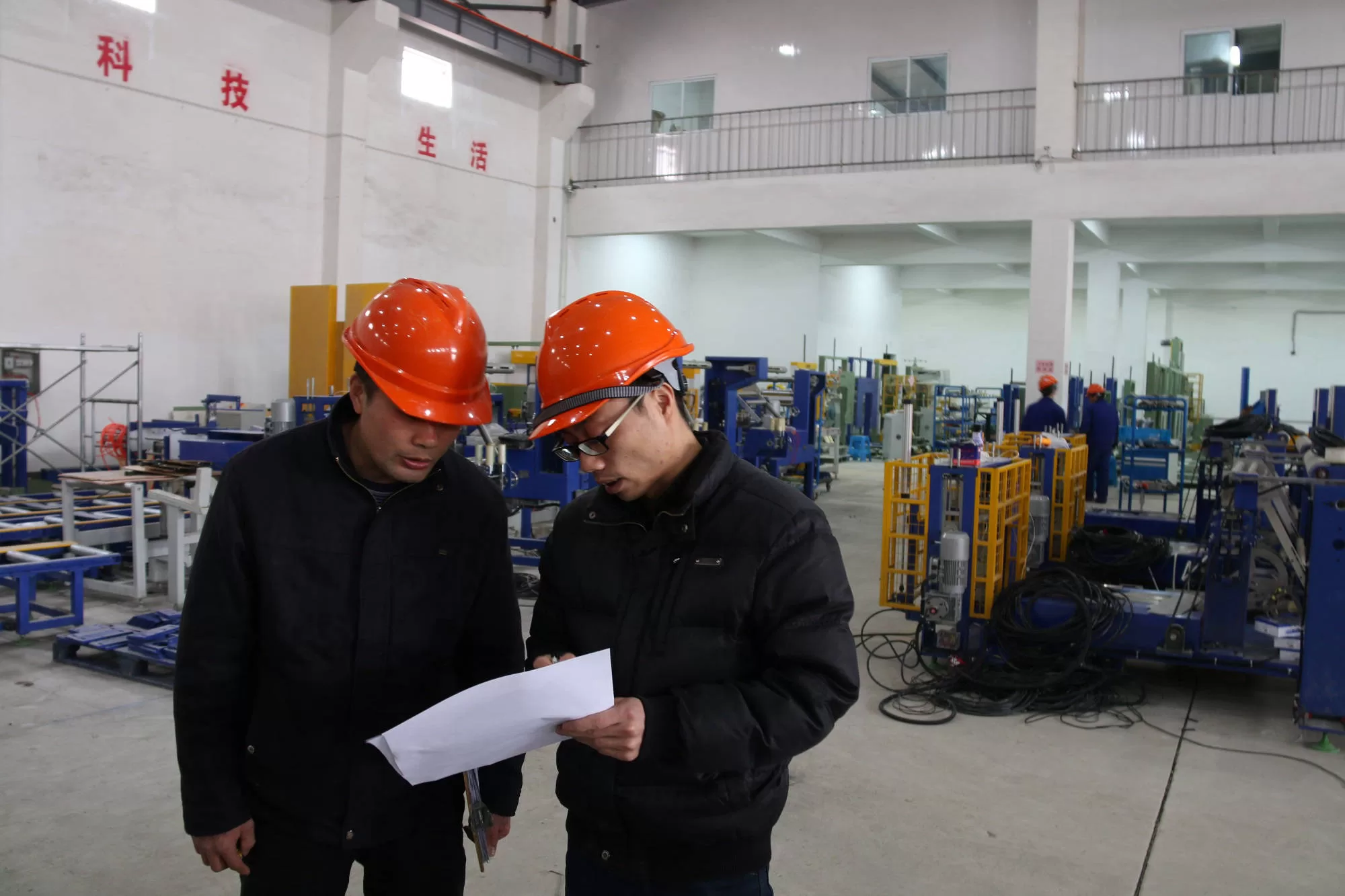
Get Your Best Solution !
5. Reducing Labor Costs and Worker Fatigue
Manual handling of heavy or cumbersome loads is not only time-consuming but also leads to worker fatigue and increased labor costs. By using pallet inverters, businesses can reduce the need for manual labor in pallet exchanges, thus lowering employee strain and the risk of workplace injuries.
a. Lowering the Risk of Injury
Handling heavy pallets manually puts workers at risk of injury, particularly back injuries. Pallet inverters take over this heavy lifting, significantly reducing the risk of injury and improving worker safety.
b. Reducing Worker Fatigue
Continuous manual handling leads to fatigue, which can decrease productivity and increase the likelihood of human error. Pallet inverters minimize the physical demands on workers, allowing them to focus on tasks that require more skill and precision.
6. Key Considerations When Choosing a Pallet Inverter
When selecting a pallet inverter for your operation, there are several factors to keep in mind to ensure you choose the right machine for your specific needs.
a. Load Capacity
Pallet inverters come in different sizes and can handle various load capacities. It’s crucial to choose an inverter that matches the weight and size of the loads you handle in your operation. Overloading an inverter can lead to malfunctions and product damage.
b. Type of Operation: Manual vs. Automated
Some pallet inverters require manual operation, while others are fully automated. If you’re looking for speed and efficiency, an automated pallet inverter is the better option. However, for smaller operations, a manual inverter may be more cost-effective and still provide the desired benefits.
c. Compatibility with Pallet Types
Different industries use different pallet types, including wooden, plastic, and metal pallets. Ensure that the pallet inverter you select is compatible with the type of pallets your business uses. Incompatible machines can cause operational delays and increase the risk of damage.
7. Real-World Case Studies: Pallet Inverters in Action
To understand the full benefits of pallet inverters, let’s look at some real-world case studies where businesses have successfully implemented these machines to reduce product damage and improve handling efficiency.
a. A Large Beverage Distributor
A large beverage distributor was experiencing high levels of product damage due to manual pallet exchanges in their warehouse. After implementing an automated pallet inverter, they reduced product damage by 40%, improved handling speed, and saw a 25% reduction in labor costs.
b. A Pharmaceutical Manufacturer
A pharmaceutical manufacturer needed to maintain strict product integrity during pallet exchanges. They implemented pallet inverters to handle sensitive loads and saw a 50% reduction in contamination risks and faster product handling times, ensuring compliance with strict industry regulations.
Conclusion
In conclusion, pallet inverters are invaluable tools in the modern warehousing and logistics landscape. Their ability to reduce product damage, enhance handling efficiency, and improve worker safety makes them an essential investment for businesses looking to optimize their operations. Whether in the food and beverage industry, pharmaceuticals, or general warehousing, pallet inverters can transform the way you handle products, saving both time and money while ensuring product integrity. By carefully selecting the right pallet inverter for your operation, you can reap the full benefits of this innovative technology.

Get Your Best Solution !





